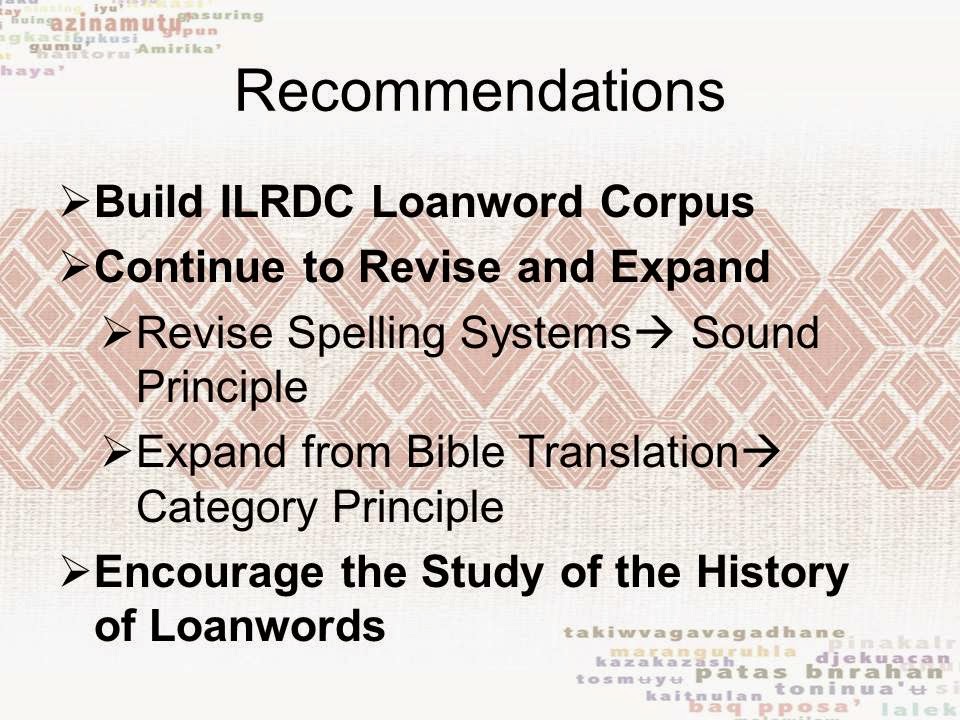介紹我在2014年12月27日2014年台灣原住民族語言國際研討會發表的「台灣原住民族語借詞初探」。
On 27th December 2014, ILRDC (Indigenous Languages Research and Development Center) hosted its first international conference in Taipei, Taiwan.
On 27th December 2014, ILRDC (Indigenous Languages Research and Development Center) hosted its first international conference in Taipei, Taiwan.
(Photo from left to right: Te Haumihiata Mason, Amy Pei-Jung Lee, Poia Rewi, former ILRDC Director Wen-Chung Kao, Feng-Fu Tsao, Paul Jen-Kuei Li, Yedda Palemeq, Joy Jing-Lan Wu, CIP Director Kun-Sheng Chen, Tiun Hak-khiam and Tukung Sra)
The theme of the conference was 'Loanwords, New Words and Indigenous Revitalization Policies'. Thirteen specialists and junior researchers of the Austronesian languages attended to share their knowledge; eight of them are indigenous.
Taiwan Indigenous TV covered the conference with 原民外來新詞調查成果 學者交流. My colleague, ilong moto, and I myself were interviewed for our individual research, while Deputy Minister of Council of Indigenous Peoples, Tunkan Tansikian, talked about the purposes and prospects of ILRDC.
From mid-September until late November 2014, within eight weeks, my assistant and I traveled for more than 4,800 kilometers inside Taiwan to collect loanwords from 16 officially recognized indigenous languages, and we presented around 3,000 of them in the conference according to the following ppt:
My greatest regret was that I didn't get to share the story about baljaka in the end; that is the word for Europeans or Americans (white people) used by Paiwan, Puyuma or Amis peoples. It is a loanword from at least the 16th century and is associated with Malacca in Malaysia. Hundreds of years apart, the link was sort of revived when I interviewed a Puyuma elder at his seventies in 2014. Isn't that amazing?
What I want to do the most now is to pursue these amazing links; words like tobacco, sato (sugar) or saviki (betel nut) all carry similar histories of complicated circles of culture contact. I could and I want to write a book about them. I will.






































No comments:
Post a Comment